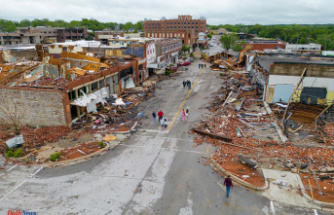According to retailers, rail strikes and concerns about the cost living kept shoppers away last month from Scotland's high street shops.
According to the Scottish Retail Consortium (SRC), footfall increased slightly between May and Juni, according to figures.
They were however more than 15% lower than pre-pandemic levels for June.
SRC reported that footfall in Scotland was worse than elsewhere in the UK for the second consecutive month.
Three 24-hour strikes by Network Rail and the RMT union disrupted rail services in Scotland last month.
ScotRail, which is now nationalized, continues to operate a reduced schedule while it trains new drivers. This follows a separate dispute that involved drivers who are members Of Aslef.
Andy Sumpter is a consultant at Sensormatic Solutions, which compiles Scotland's footfall data. He said that June was "a rollercoaster ride for the high streets."
He said: "The highs in the 'Jubilee Jump’ in footfall, where retailers benefited at the beginning of the month, were, in part, derailled by the rail strikes as many shoppers stayed home to avoid disruption to travel.
"This mixed bag in footfall performance will not do much to alleviate retailers' concerns as the cost-of-living and inflationary pressures continue weighing heavy in the public mind."
SRC stated that although the June figures were disappointingly low, Edinburgh and Glasgow outperformed the national average. Footfall in Glasgow fell 12.6%, while it was 9.6% in Edinburgh.
Ewan MacDonald Russell, head of policy at SRC, stated that there was a slight improvement in this month's numbers but the harsh reality is that high street retailers see 15% fewer customers than they did before Covid struck Scotland.
"With inflation at 9% last month the pressure on discretionary spending will only grow."












